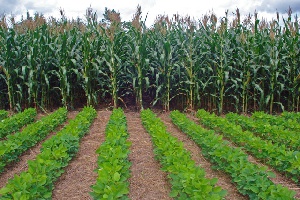Agriculture is the backbone of Ghana’s economy, providing livelihoods for millions and contributing significantly to food security. However, the sector is increasingly vulnerable to the impacts of climate change, which threatens both the stability of food production and the well-being of farming communities.
Rising temperatures, erratic rainfall, and extreme weather events are disrupting traditional farming practices, leaving farmers grappling with unpredictable yields and food shortages. In response, climate-smart agricultural practices have emerged as a sustainable solution, offering farmers tools to adapt to changing conditions while ensuring long-term food security.
This article discusses the challenges posed by climate change to agriculture in Ghana, introduces climate-smart farming techniques, and highlights successful sustainable farming initiatives that promote community resilience and food security.
Agriculture in Ghana is highly susceptible to the effects of climate change, which poses serious risks to food security. The unpredictable weather patterns, such as irregular rainfall and prolonged droughts, are undermining crop production, especially in regions that rely heavily on rain-fed agriculture. According to the Food and Agriculture Organization (FAO), climate change is expected to reduce yields of staple crops like maize, cocoa, and rice, which are vital to both local consumption and export revenue (FAO, 2021).
In addition to changing rainfall patterns, rising temperatures affect crop growth and increase the frequency of pests and diseases, further threatening food production. These changes not only impact farmers’ income but also exacerbate food insecurity, making it harder for families to access sufficient, nutritious food. As climate change continues to affect agricultural systems, there is an urgent need for sustainable practices that can help farmers adapt and mitigate these risks.
Dr. Yaw Agyeman Boafo, a climate change expert at the Centre for Climate Change and Sustainability Studies at the University of Ghana, discussed the significant impact of climate change on food security and agriculture in Ghana. He explained that agriculture in the country is highly dependent on rainfall and temperature conditions, both of which are being disrupted by climate change.
He said this results in crop failures, especially as irregular rainfall patterns and insufficient water sources limit crop growth and reduce yields. Livestock also faces health challenges due to water shortages and climate-induced diseases. As a result, food availability and access are increasingly strained, leading to food insecurity, particularly in rural areas where farmers depend on selling crops to sustain their livelihoods.
Dr Boafo also highlighted successful examples of sustainable farming practices in Ghana, including agroforestry and conservation agriculture. Agroforestry, particularly in cocoa farming, is an effective practice that enhances soil fertility, prevents erosion, and provides additional income through timber and fruit production.
This practice he said helps farmers increase their resilience to climate change while ensuring environmental sustainability. Conservation agriculture, which involves minimal tillage and residue retention, also contributes to maintaining soil health and productivity. Additionally, organic farming methods that utilize natural pest control are gaining attention for their environmental benefits. These sustainable practices are proving effective in improving agricultural productivity while protecting the environment.
The impacts of climate change on agriculture and food security in Ghana are undeniable, threatening the livelihoods of millions and increasing food insecurity across the country. However, sustainable farming practices, such as agroforestry, conservation agriculture, and organic farming, offer hope for a more resilient future. By adopting climate-smart agricultural techniques, Ghana can not only mitigate the effects of climate change but also secure food sources for its growing population.
Strengthening these efforts through greater investment, local involvement, and education is crucial to ensuring long-term food security and promoting sustainable agricultural practices that protect both the environment and the economy. The path forward lies in the integration of innovation, tradition, and sustainability, empowering communities to thrive in the face of climate adversity.
Opinions of Monday, 25 November 2024
Columnist: Sampson Boamah



















